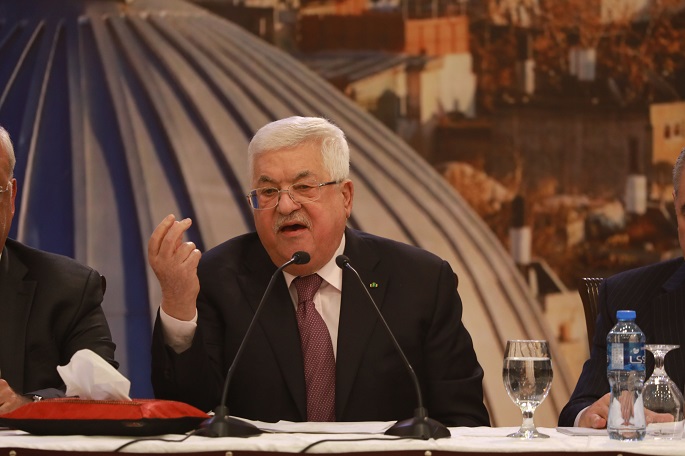In response to Trump's Mideast peace plan
Abbas for changing the role of Palestinian authority
Published : 29 Jan 2020, 01:19
Updated : 30 Jan 2020, 12:29
Palestinian President Mahmoud Abbas on Tuesday announced that he will change the role of the current Palestinian Authority in response to U.S. President Donald Trump's announced Middle East peace plan.
However, Abbas didn't give any more information about what the steps will be.
The Palestinian Authority is the interim self-governing body established in 1994 following the Gaza-Jericho agreement to govern the Gaza Strip and Areas A and B of the West Bank as a result of the 1993 Oslo Accords.
Speaking to reporters after an urgent leadership meeting in the West Bank city of Ramallah, the Palestinian president completely rejected Trump's peace plan, also known as the Deal of the Century, saying the plan "will not pass and will end in the dustbin of history."
He described it as "the mockery slap of the century" and called for unity and the right of return of all Palestinians.
"With the support of free people around the world, this plot will fail," Abbas said.
"Jerusalem is not for sale," he said. "Your conspiracy deal will not pass and the Palestinian people will reject it."
"Jerusalem is the capital of the State of Palestine," Abbas noted.
Abbas also said Trump's plan represents a return to the 1917 Balfour Declaration.
The Balfour Declaration was a statement by the British government on Nov. 2, 1917 that announced its support for the Jewish people to build their state on the lands of Palestine.
"We are committed to negotiations on the basis of international legitimacy because it is our reference," Abbas said.
At a White House ceremony attended by Israeli Prime Minister Benjamin Netanyahu earlier in the day, Trump announced a plan that would allow the creation of a Palestinian state with a capital in parts of East Jerusalem, in an effort to achieve a peace breakthrough with Israel that will be a tough sale for Palestinians.
Under the proposed plan, the United States will recognize Israeli settlements on the occupied West Bank. In exchange, Israel would agree to a four-year freeze on new settlement activities during the negotiation over Palestinian statehood parameters.
Netanyahu said the U.S. plan envisages Abu Dis, a neighborhood on the outskirts of Jerusalem, as the proposed Palestinian capital, and that he will apply Israeli jurisdiction to the Jordan Valley, the northern Dead Sea and West Bank settlements while offering Palestinians "conditional, limited sovereignty."


